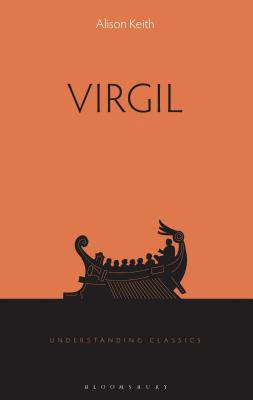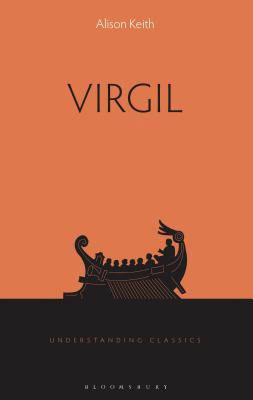
- Afhalen na 1 uur in een winkel met voorraad
- Gratis thuislevering in België vanaf € 30
- Ruim aanbod met 7 miljoen producten
- Afhalen na 1 uur in een winkel met voorraad
- Gratis thuislevering in België vanaf € 30
- Ruim aanbod met 7 miljoen producten
Omschrijving
The works of Virgil (70-19 BCE) define the 'golden age' of Latin poetry and have inspired a long tradition of interpretation and adaptation that starts in his own time and extends to important modern authors. His ascent from the lesser genre of pastoral (the Bucolics) through a more ambitious didactic mode (the Georgics) to the soaring heights of epic (the incomparable Aeneid) shaped the canonical writings of other authors, from his younger contemporary Ovid through the medieval writers Dante and Petrarch to the early modern poets Spenser and Milton and well beyond. Virgil, as Alison Keith shows, has never gone out of critical or popular fashion.
This wide-ranging introduction appraises a figure of central importance in the history of Western music, art and literature. Offering close readings of the Bucolics, Georgics and Aeneid, Keith places Virgil and his poetry in historical context before tracing their impact at key moments in the culture of the West. Emphasis is placed on Virgil's reception of the classical literary and philosophical traditions, and on how his poetry has attracted modern interest from writers as diverse as T. S. Eliot and Ursula K. Le Guin.Specificaties
Betrokkenen
- Auteur(s):
- Uitgeverij:
Inhoud
- Aantal bladzijden:
- 224
- Taal:
- Engels
- Reeks:
- Reeksnummer:
- nr. 1
Eigenschappen
- Productcode (EAN):
- 9781848859197
- Verschijningsdatum:
- 12/12/2019
- Uitvoering:
- Hardcover
- Formaat:
- Genaaid
- Afmetingen:
- 140 mm x 216 mm
- Gewicht:
- 403 g

Alleen bij Standaard Boekhandel
Beoordelingen
We publiceren alleen reviews die voldoen aan de voorwaarden voor reviews. Bekijk onze voorwaarden voor reviews.







